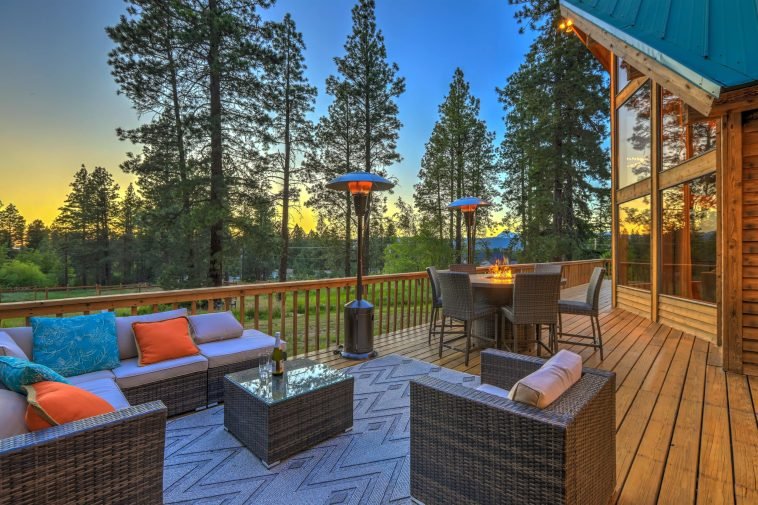Introduction.
Choosing the right location for an Airbnb can be the ultimate make-or-break factor in a property’s success.
Even the most well-furnished, beautifully photographed Airbnb listing won’t perform if it’s in a spot that’s inconvenient, hard to reach, or just doesn’t appeal to travellers.
Location impacts everything from your occupancy rates to the types of guests you attract and even the nightly rate you can command.
In this guide, I’ll walk through what makes a great Airbnb location, covering key factors like proximity to attractions, neighbourhood vibe, safety, and guest preferences.
Along the way, I’ll also include some insider tips and handy resources to help narrow down your search, whether you’re new to Airbnb or a seasoned host looking to expand your portfolio.
How Do I Find The Best Location For Airbnb?
1. Proximity to Tourist Attractions and Popular Destinations.
Being close to popular sites—whether they’re beaches, historic landmarks, shopping districts, or natural parks—can significantly boost your Airbnb’s appeal.
Tourists often prioritize convenience when booking accommodations, so the closer you are to what they want to see or do, the higher the chance of booking.
If you’re considering different areas, research popular tourist spots and their annual visitor numbers to gauge potential demand.
Websites like TripAdvisor and tourism boards provide this data. Studies show that proximity to attractions can increase booking rates by up to 30%, as properties close to attractions often appeal to both domestic and international guests.
2. Accessibility and Public Transportation.
An area’s accessibility, including proximity to airports, public transport, and major highways, is critical.
In bustling cities, guests value easy access to trains, buses, or metro stations, especially if they plan to explore without a car.
For suburban or rural locations, where public transport may be sparse, consider areas with direct routes to major attractions.
Areas close to public transit often attract younger travellers and budget-conscious guests, while properties in more secluded areas could appeal to those looking for a quieter, more relaxing experience.
Accessibility influences not only the convenience for guests but also the types of travellers you’ll attract.
3. Safety and Neighborhood Appeal.
Safety is often a top priority for guests, and reviews that mention the safety of a neighbourhood positively impact booking rates.
You can use online crime mapping tools or local police department reports to understand neighbourhood safety statistics.
Additionally, exploring the area’s social scene, and amenities like grocery stores, and restaurants can give insight into how appealing the neighbourhood might be.
For example, Airbnb’s internal studies show that travellers prefer neighbourhoods that are well-lit, walkable, and near conveniences like restaurants and cafes.
4. Local Regulations and Airbnb Policies.
Many cities worldwide have started regulating short-term rentals, so it’s essential to understand any limitations in your prospective location.
Some cities require permits or licenses to operate legally, while others limit the number of days you can rent out a property. Websites like Airbnb’s “City Portal” provide local guidelines for hosts.
Make sure to read up on specific rules, as cities like New York and San Francisco have stringent laws for short-term rentals, which could impact your profitability or even prevent you from listing.
5. Competitive Analysis and Local Rates.
Understanding what other hosts in your target area charge per night can help gauge potential earnings.
Use Airbnb’s search feature to look up properties similar to what you’re planning to offer, and take note of their prices, amenities, and guest reviews.
For a deeper dive, tools like AirDNA or Mashvisor can provide data on occupancy rates, seasonal pricing, and competition analysis.
For instance, AirDNA reports that beachside properties in popular tourist destinations like Miami or Malibu often have occupancy rates of around 80% during peak season, significantly boosting revenue potential.
Pros and Cons of High-Demand Airbnb Locations
Pros:
- Higher Occupancy Rates: Close proximity to tourist areas and amenities often leads to higher booking rates and lower vacancy.
- Premium Pricing: Well-located properties can command higher nightly rates, which means more revenue potential.
- Predictable Guest Demand: Locations near popular attractions often have more consistent demand throughout the year.
Cons:
- Higher Property Costs: Properties in prime areas tend to be more expensive, affecting your initial investment and ongoing expenses.
- Increased Competition: High-demand locations often attract other Airbnb hosts, making it more challenging to stand out.
- Strict Regulations: Many desirable tourist spots impose strict short-term rental regulations, which could limit your flexibility and profitability.
FAQ Section
Q: What are some of the best cities for Airbnb investments?
A: Cities like Austin, Nashville, and San Diego have shown steady demand due to their unique blend of attractions, thriving cultural scenes, and tourist-friendly regulations. However, it’s important to research because local laws and popularity can change.
Q: How can I determine the occupancy rate for an area?
A: Tools like AirDNA and AllTheRooms provide data on occupancy rates, revenue estimates, and seasonality patterns for specific areas, which can be very helpful for understanding demand.
Q: Do I need special insurance for an Airbnb property?
A: Yes, it’s recommended to get short-term rental insurance since typical homeowner policies don’t cover Airbnb activities. Some hosts also take advantage of Airbnb’s own Host Protection Insurance, but it’s wise to review all options.
Q: How close should an Airbnb be to popular attractions?
A: Generally, a 15-20 minute commute to major attractions works well. However, properties in quieter neighborhoods can appeal to travelers seeking a more relaxed atmosphere, even if they’re further away.
Q: How can I manage guest safety concerns?
A: Address safety by investing in good locks, security cameras (for outside areas), and well-lit entrances. Make sure to mention these features in your listing to reassure potential guests.
Conclusion
Choosing the best Airbnb location goes beyond just finding a popular destination. It’s about balancing accessibility, safety, neighborhood appeal, and local regulations to create a desirable and profitable listing.
By considering your ideal guest type, nearby attractions, and potential earnings, you can increase your chances of success in the competitive Airbnb market.
Are there specific factors you consider most important when choosing an Airbnb location?





GIPHY App Key not set. Please check settings